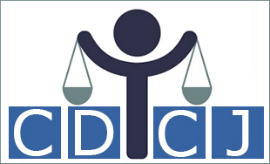Artificial Intelligence and Administrative Law

The use of automated decision-making systems (ADMs) and artificial intelligence (AI) in the public sector is becoming more prevalent, as a result of the increasing demand for simplified, user-friendly, expedited, and round-the-clock available services. Governments are increasingly using AI for public administration innovation and transformation, redefining how they design and deliver policies and services.
The question remains whether rules and principles of administrative law are sufficiently future proof to regulate new forms of decision-making effectively, as the use of artificial intelligence introduces both new opportunities and new risks to public administration. Accordingly, the deployment of ADMs and AI in the public sector, in particular in administrative decision-making, should be accompanied by additional safeguards with the aim to ensuring transparency and accountability, as well as reducing risks, and preventing or remedying any possible infringements of the rights of the concerned individuals.
In accordance with its Terms of Reference (2022-2025), The CDCJ established in 2022 a limited working group on administration and artificial intelligence (CDCJ-ADMIN-AI) with the aim of assisting the CDCJ in this area, including by preparing proposals on possible future work by the CDCJ in this field, as well as by updating the handbook “The Administration and You” in the context of algorithmic decision-making.
4th meeting (28-29 September 2023)
Strasbourg, France
3rd meeting (10 and 17 July 2023)
Videoconference
2nd meeting (14 February 2023)
Videoconference
1st meeting (3 November 2022)
Videoconference
- Comparative Study on Administrative Law and the Use of Artificial Intelligence and other Algorithmic Systems in Administrative Decision-making in the Member States of the Council of Europe (December 2022)
- Publication (March 2023) The Council of Europe & Artificial Intelligence – Overview of the Council of Europe activities in the field of artificial intelligences - see www.coe.int/AI
- Council of Europe’s work in progress in the area of artificial intelligence
Administration and artificial intelligence
4th meeting of CDCJ limited working group (CDCJ-ADMIN-AI) to update the Handbook “The Administration and you”
The working group on Administration and artificial Intelligence of the European Committee on Legal Co-operation (CDCJ-ADMIN-AI) held its fourth and last meeting on 28-29 September 2023 in Strasbourg and online. The working group completed the update of the handbook “The administration and you”,...
3rd meeting of CDCJ limited working group on administration and artificial intelligence (CDCJ-ADMIN-AI)
The third meeting of the CDCJ limited working group on administration and artificial intelligence (CDCJ-ADMIN-AI) took place on 10 and 17 July. The work on updating the handbook “Administration and You’, which was published by the CDCJ in 2018, progresses steadily. The working group aims to...
New report on the interplay between artificial intelligence and administrative law
On 24 November 2022, the European Committee on Legal Co-operation (CDCJ) approved the publication of a comparative study examining the interplay between artificial intelligence and administrative law.



